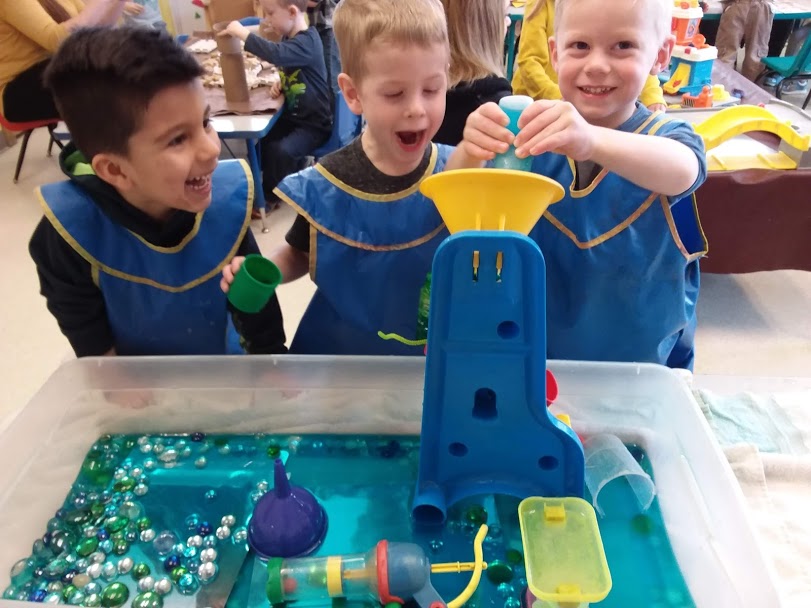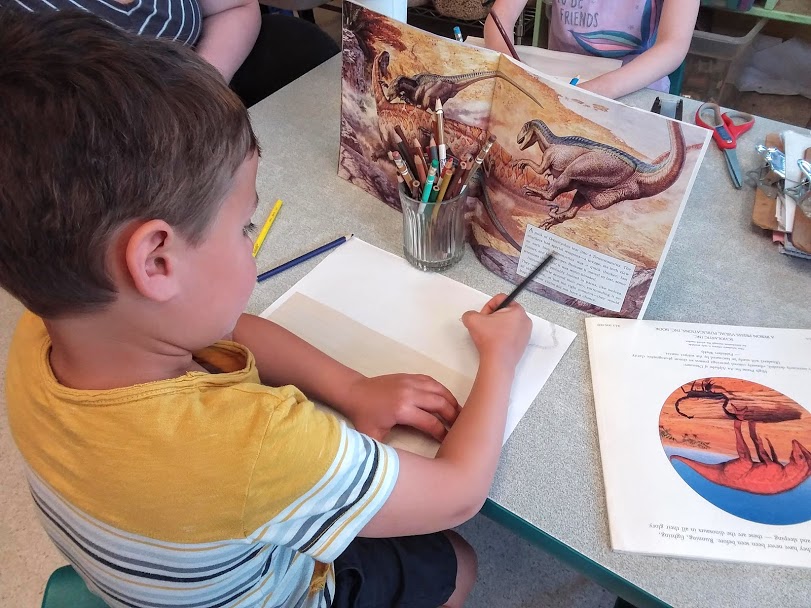
“The curriculum consists of the plans for the learning experiences through which children acquire knowledge, skills, abilities, and understanding.”
~NAEYC Developmentally Appropriate Practice (DAP) Position Statement
At DDC, we believe in play-based learning, which may look different from other preschool settings. Some programs use a “boxed” curriculum, which provides lesson plans, activities, and all the necessary reading or print materials. Although these can be helpful, our program enjoys the flexibility of following the children’s interests, rather than focusing on one theme every month.
This approach allows our teachers to customize playful learning experiences based on the children’s interests, abilities, and developmental levels, and ensures that we are connecting their learning to their real and immediate world. To ensure that our practices are evidence-based and developmentally-appropriate, we structure our plans for learning within the HighScope Preschool Curriculum.

So, what is my child learning?
In short, they are learning how to be human: how to exist in this big and confusing world, how to use their bodies in safe and appropriate ways, how to feel and name emotions, how to solve problems with others, how to follow instructions, how to do simple tasks for themselves, and how to BE. We do not force letter or number recognition, early reading, or other cognitive concepts because we believe that these higher academic skills will come once children learn how to regulate their bodies and their emotions.
Please note: our curriculum is NOT faith-based or affiliated with any specific ideology or political affiliation. Children come with their own life experiences, and when those “big topics” come up (religion, holidays, current events, etc.), staff encourage children to listen to others’ ideas and remember that we do not have to agree, but we can ALWAYS be kind. Staff do not promote any one way of thinking, but model curiosity and turn questions back around on the children (e.g. child asks teacher, “what do you believe?” teacher may respond, “I believe a lot of things… what do you believe?”. Our books and educational materials are representative of many views and experiences, so that children are exposed to more ideas than just what they see on a daily basis. If you have specific concerns about a topic, please do not hesitate to bring it up with your child’s teacher.
